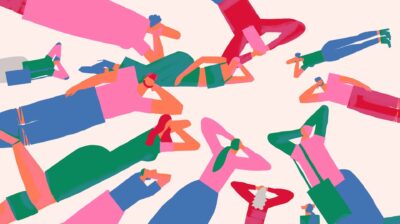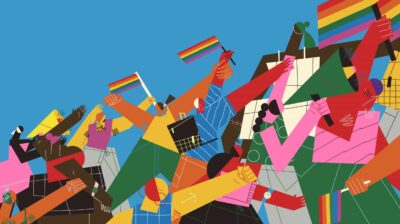Why I’m trying not to label my gender or sexuality
Ann talks about why it’s important to be flexible with the labels you use

As someone who questioned their gender and sexuality for years, I am aware of how important labels are for someone. But honestly, not having a label for yourself can be just as important.
Being open with who I am
From the age of 13 to 19, I was constantly questioning myself. I experimented with my sexuality and gender for years, constantly looking for the label that fitted me best. It got to the point where I just wasn’t being authentically me. Cliché, I know, but it’s true. I was pushing myself to be the person who people perceived me as, rather than just being myself.
I identified as FTM transgender for about four years until fairly recently. When I started identifying as trans, I poured my heart and soul into appearing masculine. I ditched dresses and skirts (not that I particularly liked them, anyways). I just wanted to appear as a stereotypical male. It felt as though I was playing a role, rather than just being myself. I felt I couldn’t talk to people about it. I didn’t know any trans people and felt that my friends wouldn’t understand how I was feeling.
Clothes really played a large role for my gender identity. Wearing hoodies and loose jeans made me feel masculine and comfortable. I saw ‘girly’ clothes such as dresses, leggings, etc as something I just couldn’t wear while I was identifying as male. Once I let go of the idea that I needed to be as masculine as possible, a fog lifted. I began (albeit very rarely) wearing skirts and tight pants, and felt like myself for the first time in a long time. As I allowed myself to be more open with my clothes choices, I began feeling more open with myself. I had let my identity consume me, and as I started letting myself just do and wear what I wanted, it genuinely felt incredible.
LGBTI+ young people in rural Ireland
Coming from the west of Ireland unfortunately meant that, at the time, there was nowhere for me to go for support. I didn’t know many adults I could talk to about my gender and sexuality. This made ‘finding myself’ incredibly difficult. I had younger LGBTI+ people coming to me for support and advice as, like me, they had no one to turn to. Thankfully, I had a very supportive older cousin who helped me get binders and other things that helped me feel more comfortable with myself.
If you don’t have a supportive person in your life, there’s many organisations who can support you, give advice, and help you find support groups near you. Transgender Equality Network Ireland (TENI) and BeLonG To are two organisations that help LGBTI+ young people. I found the people at TENI to be incredibly helpful at a time when I needed help.
Thankfully, in recent years, Ireland as a whole has gotten much more accepting and supportive, which can be seen in the opening of LGBTI+ support and drop-in centres, many of which are still holding meetings and drop-ins via Zoom. More people are comfortable coming out to friends and family, and there’s support for those whose family and friends don’t accept them.
Supportive friends
Once I got to college, things became much easier. People were much more understanding, and I have endless support from my friends. Around April or May, when I let people know that I don’t really identify as trans anymore, and that I’m still figuring out who I am. I had an influx of messages of endless support from my friends. I’m not sure if they know how much that meant to me, but it was exactly what I needed. I needed to know that it was okay to not have a label for myself.
At the end of the day, we’re all just people. We’re all different and unique, and that’s beautiful. You don’t need to label who you are if it doesn’t make you happy. You can take as much time as you need to find your label, and it’s so important to remember that you have no obligation to stick with it; people change. You can just be you, and that’s more than enough.






